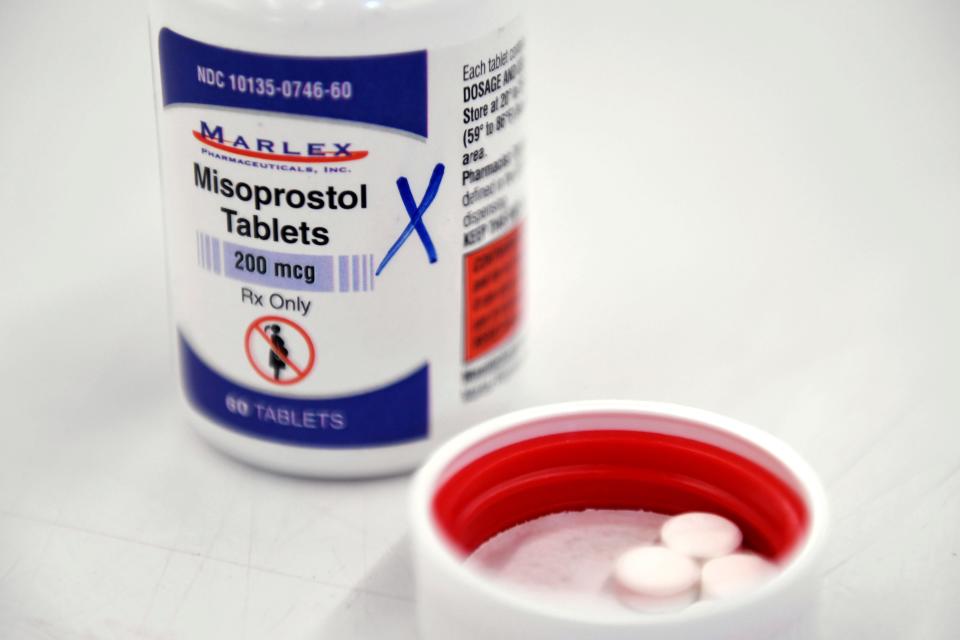Abortions in SC plummeted after six-week ban enacted; mifepristone limit could be next
After South Carolina’s six-week abortion ban took effect in August 2023, abortions in the state plummeted, according to data from the South Carolina Department of Health and Environmental Control.
In the seven months between Jan. 1 and Aug. 22, 2023, 7,397 abortions were performed in South Carolina, representing more abortions performed than in each of the previous two years.
Abortions in the state after South Carolina's Senate Bill 474, or fetal heartbeat bill, became effective on Aug. 23, 2023, to the end of that year plummeted to 790, or 89%, according to the SCDHEC data. The bill restricts abortion after a fetal heartbeat is detected, typically at about six weeks.
Vicki Ringer, director of public affairs at Planned Parenthood South Atlantic, said the steep drop-off was not surprising, as many women are not aware they are pregnant at six weeks.
“Unless you’re like clockwork with your cycles or are regularly taking pregnancy tests, you generally don’t know, especially if you’ve never been pregnant before,” Ringer said.
Though South Carolina’s law allows for abortions to be performed if there is a medical emergency, less than five abortions with a gestational age over 12 weeks were performed in the latter half of 2023.
“Knowing that we face dire situations in South Carolina for maternal mortality and maternal complications, I would have expected that number to be much higher. So, I think that’s an indicator that those women are being forced out of state to obtain an abortion,” Ringer said, adding that if doctors can go to jail or lose their medical license, they will be more hesitant to provide care.
More: Two Upstate activists making a push for statewide hate crime legislation in South Carolina
South Carolina Maternal Morbidity and Mortality Review Committee reports South Carolina is the eighth highest for maternal mortality when compared to other states.
But, Hayden Laye, founder and leader of Campaign for Abortion Free Cities in Greenville, called the 2023 decrease in abortions a "great win for life in South Carolina" but acknowledged there was still more work to do for the anti-abortion cause in the state.
"We must hold our elected officials' feet to the fire until they pass a law protecting all persons, regardless of how they were conceived, from the moment of conception to natural death," Laye said.
"Open" ruling
In another reproductive health matter, Ringer said she would not be surprised if South Carolina lawmakers attempted to ban mifepristone during the next legislative session following the U.S. Supreme Court's unanimous ruling preserving access to the drug. Mifepristone blocks progesterone, a hormone necessary for pregnancies to continue. When used with misoprostol, the two medications end a pregnancy.
South Carolina does not restrict mifepristone in the fetal heartbeat bill, but Ringer said the Supreme Court left the ruling “open” as they denied the case based on standing.
Justice Brett Kavanaugh wrote the majority opinion, saying anti-abortion doctors, using the name Alliance for Hippocratic Medicine, did not have legal standing to sue. The decision arrived just two years after the same high court ruled to strike down Roe V. Wade, the ruling that allowed abortions, and was the high court’s first abortion-related ruling since then.
"They had doctors who already don't perform abortions who are bringing this case, who were handpicked," Ringer said, referring to the anti-abortion doctors who are plaintiffs in the case. None of the doctors in the case prescribed mifepristone, according to the Supreme Court's ruling.

Anti-abortion doctors challenged the FDA’s loosening of rules for how the medication could be prescribed.
“Allowing doctors or other healthcare providers to challenge general safety regulations as unlawfully lax would be an unprecedented and limitless approach and would allow doctors to sue in federal court to challenge almost any policy affecting public health,” Kavanaugh wrote.
Laye said the ruling was disappointing. "Pro-abortion advocates have been talking about the dangers of illegal, back-ally abortions for years. (The) unanimous ruling by the Supreme Court supports dangerous at-home, self-performed chemical abortions without medical supervision. This ruling is a death sentence for pregnant people and preborn children in America.”
In South Carolina, medication abortion represented the most common way for an abortion to be performed from 2021 to 2023. Research from the Guttmacher Institute found that 642,700 medication abortions in the U.S. were performed, which represents 63% of all U.S. abortions in 2023.
Savannah Moss covers politics for the Greenville News. Reach her at smoss@gannett.com or follow her on X @Savmoss.
This article originally appeared on Greenville News: Abortions in SC fall dramatically after heartbeat bill passes in 2023

